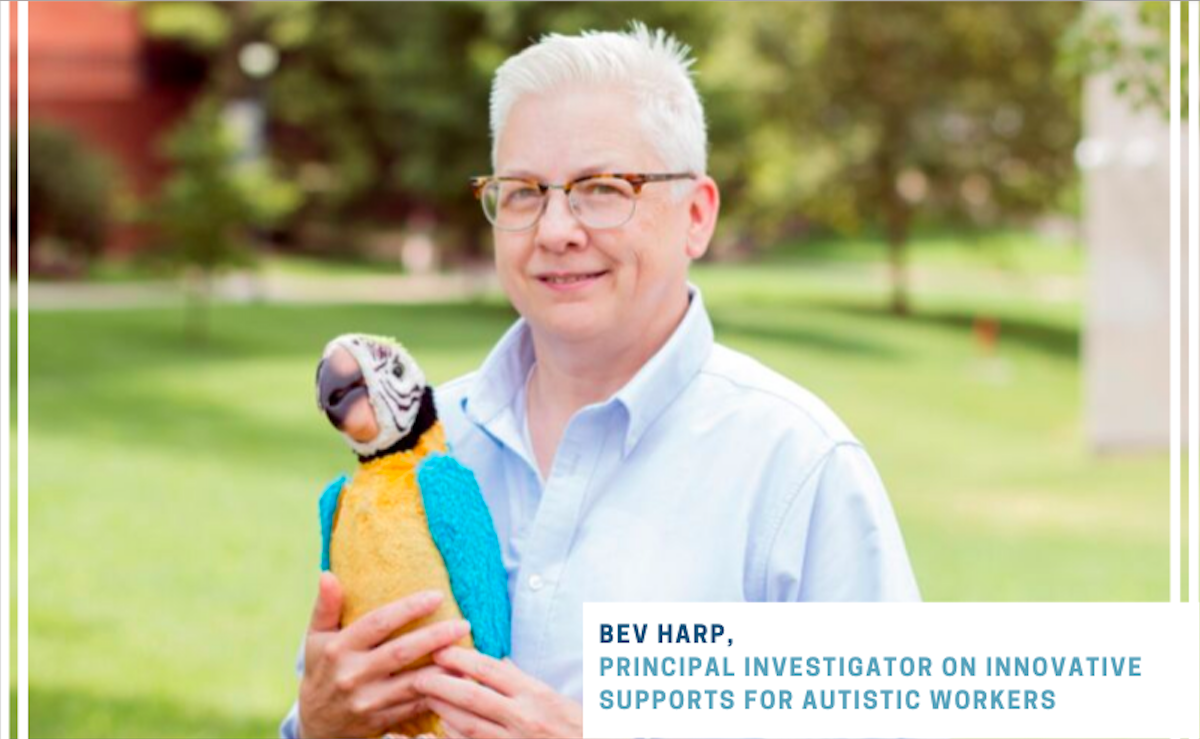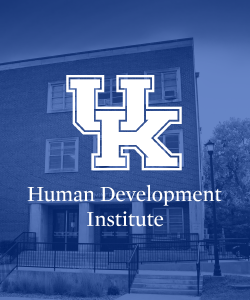There are many things I value about HDI, but two stand out to me as most important. The first is the way students are supported, nurtured, and respected as partners in our work. Research Assistants work on grant proposals, travel to present at conferences, and enjoy opportunities to contribute to the literature in our field. Practicum students have developed learning and evaluation tools that continue to benefit us long after they have moved on. The ways students are valued and embraced by the institute says a lot about our cultural character. Another vitally important aspect is our interdisciplinary focus, which provides access to a wide array of viewpoints, theories, and methods to use in our work. Having multiple ways to think about problems allows us to develop solutions that are truly innovative, and to continue growing our own understandings of disability in society.
—Bev Harp, Principal Investigator on Innovative Supports for Autistic Workers
How did you come to know HDI?
How long have you been at HDI and what is your role?
I started as an RA in 2008 and became a regular employee in, I think, 2012. My current role is PI on Innovative Supports for Autistic Workers, a training project for Business Service Teams and employers.
During your time at HDI, of which accomplishments are you most proud?
I am proud of the students with intellectual disabilities who attended college through SHEP although most had been told they never would. Some went on to earn Bachelor’s degrees, others attended only a semester or two, but all of them chose to defy societal expectations. I am proud of that defiance.
Looking back, can you please share with us a fun or fond moment you had at HDI?
There have been a lot of fun times, but my favorite memory has to be the wedding of Bixby and Quacks at Coldstream. It was a catered event with a photographer and 3-tier cake held during lunchtime on Halloween 2013. For those who might not know, Bixby is an animatronic parrot and son of Squawkers. Quacks is an animatronic duck he met at the office. A good time was had by all.
Do you have any advice you would like to share with current and future staff and students at HDI?
There really is so much you can do. Take charge of your continuing education by attending as many seminars, trainings, and conferences as you can and collaborating with more experienced colleagues. Most people at HDI are very generous with sharing knowledge and opportunities. Think beyond your current job. There are always new projects starting up. You can join a grant writing team. If you want to publish, you will find someone who wants your help on a paper. Offer to work on a poster or presentation with others. Don’t try to do this all in your first year, though. Work at a comfortable pace, but stay aware of the big picture and all the places you might fit in.
What do you think the future holds for HDI?
My vision for HDI is that we continue to see leadership by people with disabilities and continue to mentor new disabled leaders. There are types of knowledge that come only from lived experience with disability, and these ways of knowing are as crucial to the accomplishment of our missions as are research and theory. HDI does a good job of recognizing this and putting it into practice. In the future, we will maintain high standards in this area, setting an example for disability focused organizations that are perhaps still learning this lesson.



